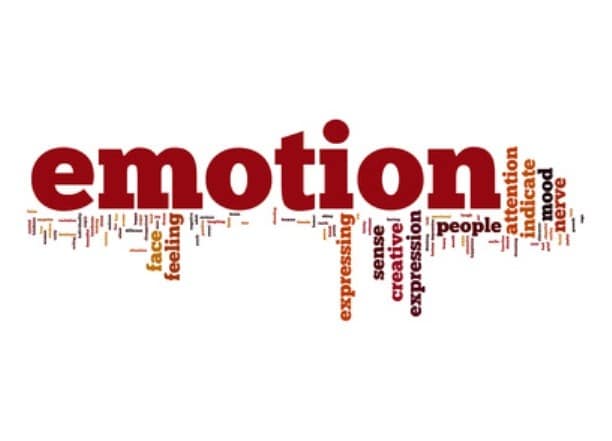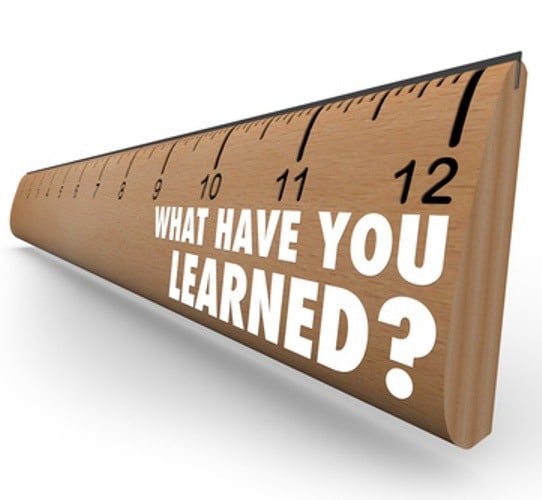The Trading Psychology of ‘Big Money’ Professional Traders
This trading lesson is a study of some of the biggest traders in the world their trading psychology and how they think and act differently.
It has some HUGE lessons including from traders dealing in hundreds of millions of dollars and I think you will get a lot out of it!
This lesson is super interesting because it takes a close look at how some of the biggest traders in the world in some of the biggest investment banks are dealing with their trading psychology and the individual strategies they are using.
A lot of traders don’t like to spend time on improving their emotions or their trading psychology and this lesson will hopefully change your mind if your are one of those traders and need convincing and are spending a ton of time looking for entry signals and new systems, but zero time on trading psychology so that you can start making new and lasting success changes to your trading.
How the Study Was Conducted
This trading lesson takes a look at a study where researchers interview traders from some of the biggest investment trading banks in the world. These traders range in experience and pay levels and the lessons learned from this study are eye opening.
The study was conducted with four leading investment banks all from London taking part – three American and one European. The manager of each bank was asked to select traders to take part in the study that were from a range of different trading markets i,e some that traded stocks, some traded in derivatives and other bonds etc.,
The average age of all of the traders selected was 32.18 years of age. The average years of experience was 7.8 years, but the difference in the traders overall experience varied hugely with some traders having 6 months experience and others 30 years.
There were 116 men and 2 women who were part of the study. Researches gathered information on individual traders characteristics and performances and carried out semi-structured interviews with each trader. If a trader was also a manager a second interview was carried out, once as a trader and again as a manager.

Researchers first reviewed any relevant literature or texts on emotions or cognition decision-making and on emotion regulation including previous studies carried out on investors/traders. Then, researchers used qualitative data from interviews with the traders and their managers to address their research questions and discuss the data in relation to any literature that they had found.
They codified the information and traders accounts of the role emotion plays in their work.
NOTE: Please take note of the system that the researchers used in this study to denote and help keep track of who was who with the traders quotes. It really helps the study to know exactly who the quote is coming from and whether they are a high paying trader and with what level of experience they have.
It makes a huge difference whether the quote is coming from a high paying and high experience trader or low paying and low experience trader or at the same time we can also learn something as you will see from other quotes where there are traders with high experience, but are still yet to have progressed up in their pay and this also tells us a lot about their quotes.
Three Levels of Trader
There was three levels of trader used for the quote system; Inexperienced, but low paid traders. Highly experienced, but low paid traders and Highly experiences and high pay. There were no low experience, but high paying traders.
The researches made these three groups for coding and so that they could provide the maximal contrast in their analysis. All of the other traders that did not fit into the three groups would normally fit into the medium experience and medium pay category.
In my lesson today I will be using direct quotes from both the study and the traders who were interviewed for the study.
I really hope this eye opening study can give you a real insight into your emotions and show you that you are not alone in the way you feel when you are trading.
We ALL have the same universal feelings when trading, but it is how we deal with them that can separate us from the pack. I would love to hear what you think at the end of this lesson, so please leave a comment in the comments section below.
How Thinking, Feeling and Emotions Affect Traders Psychology
This study first starts out by looking for evidence of if emotions can affect a traders decision making process and if so how do they go about it.
As I went through above in outlining how this study was run, in the first part of the study it looks closely at previous research, studies and texts.
The conclusions from the researchers was that “emotions have multiple critical impacts on decision-making.” They also went on to say that some of these have the potential to be detrimental to decision-making performance.

What was interesting however, was that they concluded it was not the emotion that was really affecting the decision making, but the expertise of the trader to regulate these emotions to make good decisions regardless of whether the emotions were good or bad.
In other words; and as we will discuss and look at how some of the best and biggest traders do it in the world below; it is our ability to regulate these emotions that will help us make good decisions in the market.
Another of the super interesting findings in this initial part of the study before any interviews of the traders had begun was that traders profits or losses can be affected depending on their emotional state and how they are regulating their emotions, feelings and thoughts.
How Does Being Bored Affect Traders?
As the comment from the researchers in the study goes through below; being bored or having unpleasant emotions is reflected in the decisions traders will make and thus how their profits and losses will be affected.
Traders Are Naturally Affected by Their Previous Trades, But This is a Trap
Humans can quickly kill a good trading strategy and good trading edge. This is why some traders will go on forever searching for different methods and systems.
Humans are naturally not great traders. Whereas a computer has no emotions and will continue to keep pulling the trigger on a trade entry and continue taking the same trades time and time again according to a trading edge, a trader has emotions and after a few losses the trader can start to waiver and move away from their profitable trading plan.

Often after a few losses a trader is in the real DANGER period for blowing up their account because this is the time when emotions are running hot.
This is the time when traders will do things like not take trades according to their plan because they are scared or they may go the other way and start taking revenge trades to try and quickly get back some money they have lost. Some traders begin to overtrade and some traders begin to manage their trades completely differently from their plan altogether.
The researchers stated in the study that “For many traders, especially the less experienced, trading is marked by significant and persistent emotional responses to successes and setbacks.” Two quotes to highlight this are from traders who took part in the study below;
“If you get two or three decisions wrong you find you might not take a risk for a month until you build up your confidence. There‟s definitely a lot of confidence involved.” High experience, Low Pay
“People get a bit arrogant when they have good times, but this can be dangerous because then they stop thinking as much.” Medium experience, Medium pay
Notice the difference between the pay levels, the experience levels and also what the traders are actually saying? Whilst the first trader is a high experienced trader he or she is still on a low pay level and is highly emotional and highly affected by previous trades. We can see a clear difference in the other quote.
The first trader on low pay needs a lot of confidence in previous trades to make the next trade. We can see the med pay and med experienced trader is very secure and has both the experience and skills to know trading mistakes others are making such as getting overconfident and risking too much or putting on trades they shouldn’t be.
He knows he will take losses just as he has before, but the losses will not shake his faith in his method or his trading edge and he will continue to make the same trades day in and day out regardless of what the previous trades did.
Universal Trading Emotions Including Fear and Greed
It is universal for traders to take their emotions from their previous trades with them into their next trades whether those emotions be anger, fear or even overconfidence leaning to cockiness. The massive problem with it though is that it often stops traders from sticking to their plan and playing the same trades whether they consciously realise it or not.
Whether a trader realises it or not they will often let their previous trade dictate what they do for their next trade which can then in turn make a huge difference in their trading.
For example; if a trader has just had a few losses on a certain time frame or a particular setup, even though this time frame or setup may be super profitable for them overall and if they look at their overall books they may be making a lot of money with it, because their emotions are telling them they have just been burnt they will look to avoid it and stop playing this type of setup.
Just like the first quote above from the High experience and low pay trader says “If you get two or three decisions wrong you find you might not take a risk for a month until you build up your confidence.”.
This quote highlights perfectly how previous trades can affect our thinking and emotions when what we need to be doing is trading within our edge and pulling the trigger every time our edge is available.
What Can You Learn From This Study? How to “Self Regulate” Your Emotions Like a Pro
This study showed there is a really big difference between not only how much money the experienced traders make compared to the junior and less experienced traders, but also how they use strategies to “self regulate” their emotions to deal with the daily stresses of dealing with money and trading.
The study showed it was common for junior traders to put on a front and try to present themselves as immune to the pressures of trading emotions when in reality their trading showed a completely different picture.
The experienced and high paying traders on the other hand acknowledged their emotions and use strategies to self regulate, knowing that whether they want their emotions to come or not, as long as they are going to trade, they are going to have losing streaks and this will be stressful and so they are going to have to learn to deal with it.

What was super interesting was that experience does not guarantee success and something that was a big downfall of a lot of traders was what the study referred to as traders using “situational avoidance”.
As I discuss more in the members psychology area, humans are always making decisions based on pain and more importantly trying to avoid pain. When there is anything painful, people will naturally avoid it without even thinking about it because it is the easiest thing to do.
Do You Try and ‘Avoid’ All Emotions in Your Trading? READ HERE
The study found traders especially the lower paying would use the avoidance tactic with their emotions to “self regulate”.
Whenever any sort of emotions came up, lower paying traders would look to use the avoidance tactic as their way of regulating. It was only the very best and most experienced and highest paid traders who would do reviews and go back over their emotional driven decisions.
Below is a quote from a low experience and low paying trader that shows how when emotions come up the avoidance tactic will often be used to get away from making decisions.
“I think there is a strong emotional element to trading. I think that anyone who’s doing it properly and has got their head screwed on is doing everything they can consciously to overrule that, and if I feel that I‟m trading emotionally I will walk off the desk, have a glass of water, walk up and down the street and then come back and make decisions when I‟m hopefully not emotional.” Low Experience, Low Pay
The high paying and experienced traders understood their emotions, recognised them and were not afraid of them. They had experienced losses, knew that their next loss was just around the corner at any time, but because they had experienced losses before and because they were not trying to pretend they were not affected, they instead dealt with it.
These traders spend their focus on learning from their emotional driven behavior, rather than avoiding it and then learning nothing from it.
As the quote shows below from a high paying and experienced trader, once you get over the fact that you are going to have losing trades, you can start to reflect and learn about yourself and your emotions and more importantly how to best deal with them.
“Big losses and big gains can swap around fairly quickly and once you understand that then you stop concentrating on the loss and you start concentrating more on how to make money back. … One big trade is not going to make anyone and one big loss doesn’t destroy you.” High Experience, High Pay
What do High Paying Traders do Differently?
One notable trait that a lot of high paying traders had in common was that they had a willingness to experience a lot of negative emotions in order to achieve longer term goals that a lot of other people would not cope with.
These traders are able to tolerate negativity and high tension or in other words; just ‘hang tough’ to reach their goals. The quote below outlines this beautifully.
“I had one very bad year from which I learned quite a lot. I learned that the overshooting can go on for a very long time, it can be very painful; you can hit risk limits. … I did not want to get out of the trades so kept the trades and then next year they made more money than they lost. I don‟t think I panicked, but I was getting calls from the CEO. Reason prevailed in the end. Emotionally, it was not easy to cope with.
There were times when the desk was down close to $100m, I lost almost that much in days. I was under a lot of pressure from New York because they did not understand my positions, but in the end, we managed to keep the positions and made money the next year. The hardest thing was persuading others that I had a good trade.” High Experience, High Pay
You Need to Think Longer Term With an Edge
Just as the highest paying traders in this study have shown; the best way to regulate and to deal with emotions is not to either dismiss them or pretend they don’t exist. As traders we have chosen to deal in a profession that at times will bring out all types of emotions.
These emotions are universal to all traders. I hear some traders say things such as; “I am a rock and I tell myself this everyday so I don’t feel any emotions,” but it does not matter if you repeat this 20 million times, the facts are; if you have an amount of money on the line in a trade that is meaningful to you, then when it begins to move it will create emotion – full stop.

The best way is to switch the way you start thinking about your trading. Instead of stressing about each and every trade and then letting the previous trade affect how you make your next trade, the best way to think about your trading is like the edge over the market it should be.
The reason traders are often so stressed about each trade is because all they are thinking about is the one trade they are making at that time. They are not thinking about the bigger picture.
They are not thinking about their trading edge or how they should still be making a profit even though they just lost three trades in a row and this is why they quickly let things get on top of them.
To have a “trading edge” means you have a trading method that gives you an edge over the market. What that does not mean though is that you are going to make winning trades every single trade. The market is random and nobody can ever know what trades will ever be winners or losers every single time.
For example; a trading edge may have a winning percentage of 60%, but this does not mean that for every 10 trades the edge will win 6 and lose 4. It means that over a lot of trades, the winning percentage is 60% of all trades.
How can having an edge help you with your emotions? As I just said; a huge reason for the often emotional responses from traders is because of their sole focus on only the trade they are playing and not realising they still could be making a profit within their trading edge. To change this around and think within an edge the trader needs to start thinking in probabilities and trying to put the odds in their favour.
Do You Put the Odds in Your Favour?
Exactly like the bookmaker puts the odds in their favour at the horse race track or the casino puts the odds in their favour at the gaming table, the trader needs to put the odds in their favour against the market.
The bookmaker at the horse racetrack understands when taking bets from the punters in the race that he is going to make bets that will cost him money, but he is taking all of the bets from a wide variety of people on all the different horses knowing that it is the bookmaker that holds the edge overall. Whilst he understands that he will have payouts and he also understands that on some races he will make a loss, he takes bets knowing that overall at the end of it all, it will be the bookmaker that makes the profit because the bookmaker holds the “Edge” and this is exactly how the trader needs to think.
It is thinking this way that will keep your emotions in check and allow you to continue to pull the trigger on the same A+ trades time after time because it allows you to focus on the longer term, rather than stressing about the result of every individual trade.
For you to become a profitable Forex trader and your edge to be successful it requires you to come out on top over a lot of trades not just a few. Once you understand that you will have losses, you will have wins and you will have everything in between, you can then start to relax and just trade.
When trading you can just get down to the business of making the very best A+ trades time after time, following your trading plan and letting the results take care of themselves.
You cannot control what happens with one individual trade so there is no point stressing about it, but you can have an edge over the market with many trades.
Review Your Trades Like a Pro
We now know from this study that just being an experienced trader does not guarantee success, but it goes a heck of a long way. Experience in real time in the market is the one thing that no trader can speed up or rush no matter how badly they want it and being experienced is a huge advantage.
Having experience means that you have seen and have been through a lot of ups and downs. You have experienced a lot of different emotions. Your subconscious mind has been able to store a lot of different setups and thoughts. The quote below from a high experience and high paying trader explains how experience helps.

“Experience definitely helps, having traded through the crash etc. You’ve seen different scenarios and newer people it’s like oh my god, it’s the end of the world, whereas there is life after death and so I think that type of experience helps. It doesn’t necessarily help the new situation on what to do, but it just helps your judgment.” High Experience, High Pay
Just as the study goes through; all the experience in the world doesn’t do any good if you don’t use the correct strategies and with the correct mindset.
If every time a tough emotion comes up you are trying to avoid it rather than dealing with it and then learning from it later, then all your experience will count for nothing. The study states that it was the higher performing traders who “showed a greater willingness to reflect on their emotion-driven behavior”. These high performing traders focused mainly on how they directed their attention.
The best thing you can do for your trading is to trade and think exactly like a professional and to run your trading as the business that it is. To do that means that you need a trading journal which you can get here for free; Free Forex Trading Journal and at set intervals you need to review your trading business and everything that goes with it. You may for example choose to review your trades on the last Sunday of every month.
That does not mean just reviewing the win/loss ratio, but also reviewing how you went about your trading. Was there any emotional times during the month that caused you to make poor decisions? In the next month could you make a better decision given the same emotions and situation?
This is the best way to use your experience and to gain from it. This way your experience will become extremely valuable to you. You will not be avoiding and running away from your emotions, but learning and growing stronger from them.
If you don’t use a journal and mark down the occasions when they happen in detail you simply will not be able to remember back to the moment and how you were felling at the time and what your mindset was like. It is vital you make your trade comments at the time of the trade so you can review them later to learn from them. This is super important.
Final Thoughts
It is amazing the difference emotions, thoughts and feelings can make to decision making. A trader that is struggling to make any money can sit right beside another trader who is a confident and profitable trader and yet that trader will still not make any money.
Two traders can learn the exact same method, trade with exactly the same charts, read and watch exactly the same educational material and looking for exactly the same setups and yet one trader can become a success and make consistent profits and the other struggle to break even.
The reason for this is simply; emotions and how each trader deals with them differently. It is super important you spend time not just on your trading strategy or system, but also on how you think and operate in the markets.
Thanks for this article must go to Mark Fenton-O’Creevy, Emma Soane, Nigel Nicholson and Paul Willman for carrying out their research and making their study which you can read if you are interested here Thinking, feeling and deciding: the influence of emotions on the decision making and performance of traders
Safe trading and all the success,
Johnathon


Thank you for drawing on our study. I think though that it is worth adding that institutional traders in forex mostly make money for their firms (and bonuses) by having others hit their spreads more than they hit other’s spreads. The liquidity that comes from being part of a large institution is key. Retail investors in the forex markets cannot do this and are trading against institutions with large information advantages in relation to market flows. Unsuprisingly retail investors mostly lose money very quickly.
Great article,
I have taken a long time to create my system & edge but this article sums me up in a nutshell.
Trade avoidance is my biggest enemy, past situations play havoc with my mental state and losses hurt far too much.
I will now completely re-evaluate everything.
Great article Jonhathon. Would be good to read the actual article? Do you have the link?
Hello Mike,
the article/study link is at the bottom of the article along with the credits for the researchers who published the study.
Johnathon
Glad this was of interest. You can find more about our research on my blog at http://emotionalfinance.net
Hello Mark,
thank you for stopping by and taking the time to let us all know where we can find more of your work.
I know from both myself and the traders that read and go through this blog everyday, your study was super interesting and had a lot of great lessons within it, so thanks for putting it out there!
Johnathon